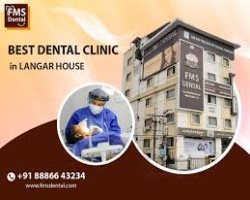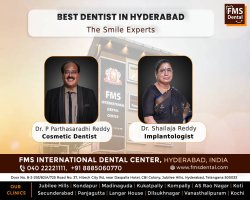
It's important to have good dental practices to keep your teeth and gums healthy. This includes things like brushing twice a day and having regular dental checkups. Good oral health is not only about preventing cavities and gum disease.
Research has found that there is a connection between a person’s oral health and their general health. Global experts see oral health problems as a major issue when it comes to public health.
Tooth decay and gum problems, if left untreated, can cause a lot of pain, self-confidence issues, and even tooth loss. These can then lead to other problems like malnutrition, speech difficulties, and a range of other issues in work, school, or other areas of life.
Minerals, such as calcium and phosphate, help make up tooth enamel, along with bone and dentin. They also prevent tooth decay and cavities. As you age, you lose minerals in your teeth.
This may be from eating sugary and acidic foods. It also occurs when bacteria accumulate in your mouth. Once enamel or bone are gone, they can't be replaced without replacing the tooth.
People can avoid these problems with good dental care, both at home and at the dentist's office. Here are some best practices for keeping teeth and gums healthy.
Regular Dental Check-up
It's important to see a dentist every six months for a check-up. They'll professionally clean your teeth and remove any plaque or tartar. The dentist will also check for signs of cavities, gum disease, mouth cancer, and other oral health issues. They may sometimes take X-rays to check for cavities, too.
A recent study showed that children and adolescents who visit the dentist every 6 months have a lower risk of cavities. However, if you're an adult with good dental hygiene, you may be able to go less often.
A recent review highlighted the need for more high-quality studies to determine the ideal frequency of dental checkups. But, this answer may vary depending on factors such as a person’s health history, age, and overall dental health. Anyone who notices changes in their mouth should visit a dentist.
Always Brush with Caution
Many people know that it's important to brush their teeth twice a day to remove plaque and bacteria. But did you know that the way you brush your teeth is just as important as how often you brush them?
The best way to brush your teeth is to use small circular motions, making sure to hit the front, back, and top of every tooth. This process takes between 2 and 3 minutes. People should avoid sawing back-and-forth motions, as this isn't as effective.
You might be surprised to learn that brushing your teeth too hard or using a toothbrush with hard bristles can actually damage your tooth enamel and gums. This can lead to tooth sensitivity, permanent damage to the protective enamel on your teeth, and gum erosion.
The good news is that you can avoid these problems by using a toothbrush with soft bristles, as recommended by the American Dental Association (ADA). You should also change your toothbrush every three months or when the bristles start to look frayed, whichever comes first.
Use Floss
Flossing is an important part of oral care! It helps remove plaque and bacteria from between the teeth, where a toothbrush is unable to reach. Flossing can also help prevent bad breath by removing debris and food that has become trapped between the teeth.
It's important to floss all the way down to the gumline, using gentle up-and-down motions. Avoid snapping the floss up and down between your teeth, as this can cause pain and won't remove plaque as effectively.
Limit Sugary Foods
Too much sugar can cause cavities, and research continues to show how big of a role sugar plays in dental health problems. Things like candy and dessert are common causes, but many processed foods also have added sugar.
The World Health Organization recommends that people limit their intake of sugar to 10% or less of their daily calories. And if we lower that amount to 5%, it would help reduce the risk of cavities and other dental problems even more.
It's no secret that starchy foods like crackers, bread, chips, and pasta can cause tooth decay. But did you know that the ADA (American Dental Association) recommends avoiding these foods in favor of fiber-rich fruits and veggies, and dairy without added sugar?
That's because starchy foods tend to linger in the mouth and break down into simple sugars, which acid-producing bacteria love to feast on. This acid can then lead to tooth decay. So next time you're looking for a snack, reach for an apple instead of a bag of chips!
Drink Water
Too much sugar can lead to cavities, and sugar-sweetened beverages are the number one source of added sugars in the typical diet of those in the U.S. The best way to avoid cavities is to drink water or unsweetened tea throughout the day and only have sugary drinks with meals or in small volumes.
Key Takeaway
Good dental practices are important at every stage of life. Brushing and flossing daily, eating a healthful diet, and having regular dental checkups can help people avoid cavities, and other dental issues. Taking care of your teeth and gums can also have positive effects on your overall health.
You may also like
More from this category.

The Power of Tandoor Ovens in Modern Commercial Kitchens

Tooth Extraction in West Delhi – Expert Oral Surgery Care | DentoHub

Vinny Pizza: A Slice of Authentic Flavor with a Modern Twist

County Pizza: Where Local Flavor Meets Legendary Taste

NextGen Diagnostic Imaging

Get the Perfect Smile with the Best Orthodontist in Langar House at FMS Dental

Best Dentist in Hyderabad – Patient-Focused Care at FMS Dental

Why Selenium Is the Most Popular Tool for Web Automation?

Anti-Aging Treatments: Modern Solutions for Youthful, Healthy-Looking Skin

